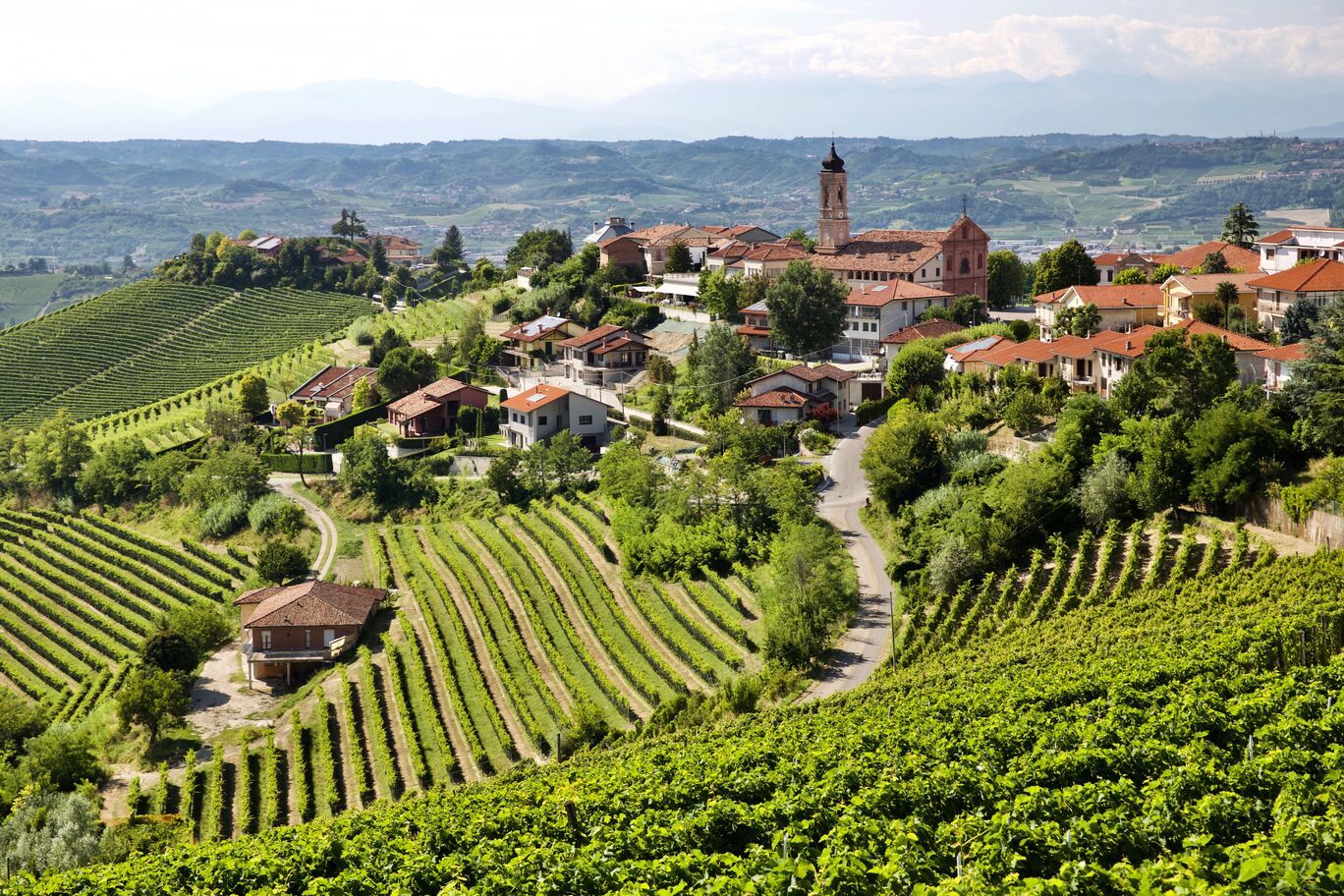
Treiso
The road to Treiso runs through vineyards of Nebbiolo, Barbaresco and Dolcetto.
The impressive size of the parish church stands on the main square, the town’s main feature is the rock called “of the seven brothers”.
The fair, famous for its sports and games, is held every second Sunday in November.
History
Recently, one of the few Piedmontese archaeological sites from the Neolithic era has been found in Treiso.
No findings have remained of the Roman period, but a marble tombstone, unfortunately without inscriptions.
After the year 1000, in the “Montersino” village a big and important monastery was founded. Of it nothing is left. Near the town stands also a big church, dedicated to Saint Alexander.
Treiso and the legend of the rock of the seven brothers
At 410 meters, Treiso is the highest located village of the Barbaresco area.
From the village you get beautiful views over the rolling hills with, on clear days, the snowy peaks of the Northerly Alps with the Monte Rosa in the background.
The area around Treiso is special from a geological point of view.
When you follow the road to Canta you find signs for the Strada Romantica which will lead you to the ‘Rocca dei Sette Fratelli’ (the rock of the seven brothers).
It is a huge sinkhole in the ground, suddenly subsiding about 100 metres from the gently rolling vineyards.
The place looks amazing: as if a huge piece of land has just disappeared into the earth.
It almost seems unreal and maybe not surprisingly, a myth has developed around it (they do love their myths and legends in the Langhe).
The tragic death of the seven brothers
The story goes that there were seven brothers working the land; back then, there was a strong belief that Gods determined the success of the work and harvest.
Hence, the rules and traditions were very specific: What should and should not be done to honour the Gods, and importantly, how not to upset them.
The seven brothers did not believe this, and decided to follow their own logic and insight: of course, this could not end well.
The legend tells that during a religious procession, the sister came to the field where her brothers were working the land, to bring them a little lunch.
The brothers should have prayed for the procession and denied the food, as it was fasting time, but they decided not to follow the religious rules, eating their lunch and swearing against God.
As punishment, the earth suddenly subsided from underneath their feet, and all the brothers were buried alive and just the sister survived.
The enormous crater remained to remind the people of God’s punishment and power.
Back to the present day
Obviously the presence of this natural spectacle has a more rational and scientific reason, that is the erosion of the ground made by water along the centuries; through the crater there is also a nice path where to walk: it goes without saying that it is breathtaking and highly recommended!
The route that leads past the ‘Rocca’ is part of the Strada Romantica (romantic road): one of the most scenic routes in Italy; it has been created to take the visitor on a journey through the unique and stunning landscape of the Roero and Langhe.
Whereas the routes in this book are circular and focus on one area at the time, the ‘Strada’ provides an interesting intersection of these areas.
The route is centred around eleven spots that are of outstanding beauty and tell the story of the extraordinary interaction between man and nature.
So, don’t think that the driving is just to get you to the next village, today the journey is as important as the destination.
Food & Drinks
